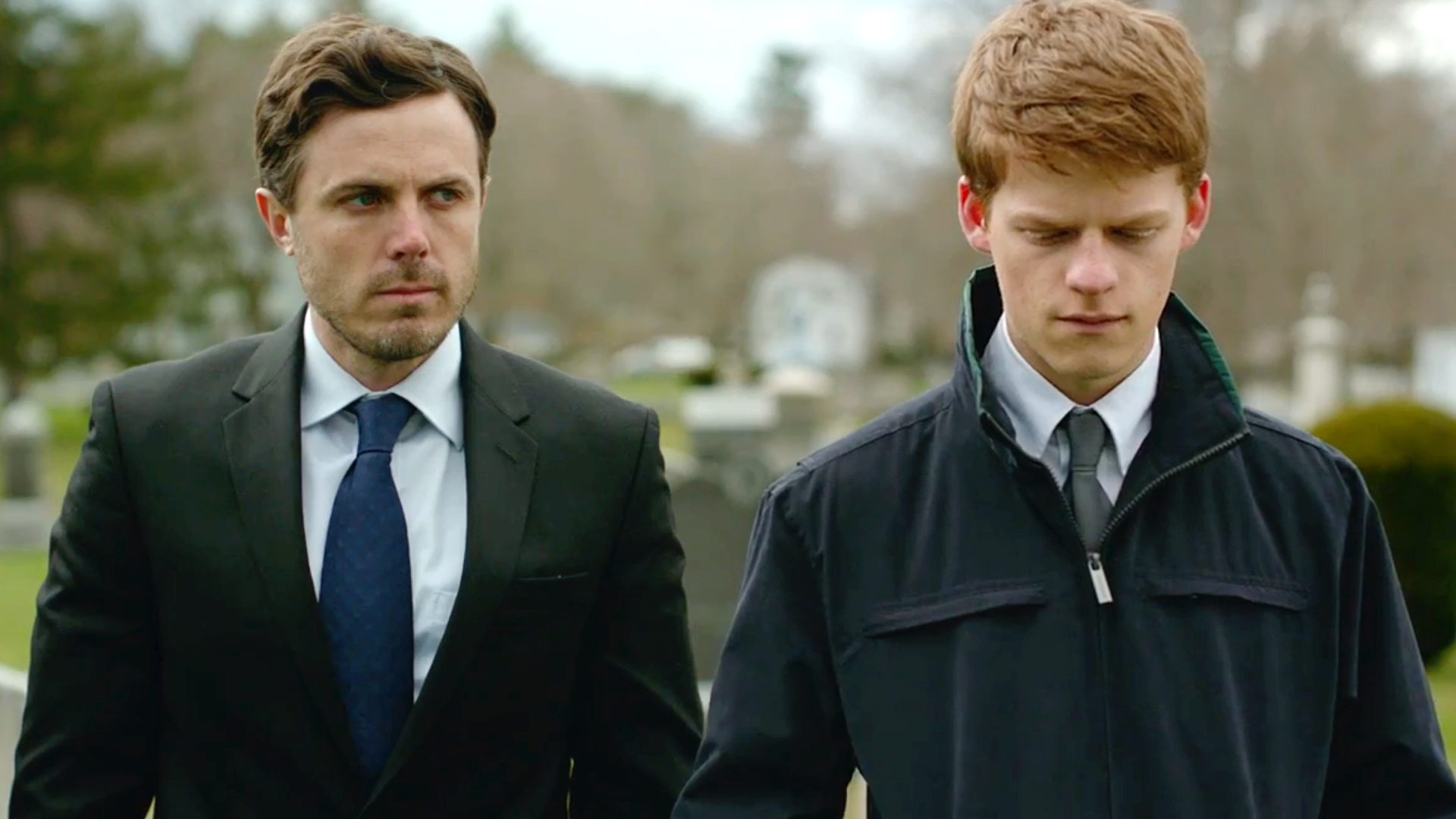Starring: Casey Affleck, Michelle Williams, Lucas Hedges, Kyle Chandler
Manchester by the Sea has been pegged as one of three of the Academy Award front-runners this year. Along with La La Land and Moonlight (which I previously reviewed), Manchester by the Sea has a lot of awards buzz, and has been doing very well in a semi-wide release over the past few weeks. The most attention has been directed towards Casey Affleck's mesmerizing performance as a man struggling with grief. Lee Chandler has a horrible past that is following him. After traumatic events, he has split from his wife Randi and become the black sheep of the Chandler family. When his beloved brother (the only one who still cared for him) dies suddenly, he must go back to Manchester and take care of his nephew Patrick. He has to face the town and wife he left behind, and learns that his brother named him as Patrick's guardian. Manchester by the Sea is a raw film. It does nothing to try and sugar coat the tumultuous feelings of grief and how it affects us all. It does not try to pretend that grief ever goes away. Manchester by the Sea feels like this decade's Good Will Hunting, in which it presents a specific situation that applies to life. In that film, it was a story of two men: a cocky genius and a soft psychologist who shows him how to open up, and their friendship teaches both men things about themselves. In this film, it's a man and his nephew, and how their unlikely partnership helps them both live with the different sorts of grief and loneliness they feel.
Instead of addressing the acting, I'm going to delve into the characters. All the acting is top-notch, but it doesn't feel like acting. Each character feels like an everyday person. Every single one of us could become Lee Chandler. Whenever something bad happens, there is always the option to pack a bag and leave. Manchester by the Sea is evidence that you can never escape your past. Lee sees his nephew Patrick and sees himself. He sees a cocky little kid in denial about death, that just wants to move on. Throughout the film we see Lee teach Patrick that it's okay to cry, to yell, and to be angry at the world. In return, Patrick shows Lee that he's never really gotten over his past, and that makes it even harder to try and take care of a boy and accept a new loss. Lee tearfully tells Patrick: "I can't beat it. I can't beat it", and I feel that is incredibly true of grief. It never goes away. Speaking of never going away, Lee's ex-wife Randi comes and goes like the tide. He's cut all ties with her, yet she suddenly calls him to tell him she's pregnant, and wiggles her way into his brother's services. She looks at him across the church and her face is unreadable. You cannot see if her eyes are hiding hatred or sorrow, or possibly a blank expression. In one of the final scenes, she meets Lee and confesses that she still loves him. It's possibly the best scene in the movie. The first time I saw this movie I hated Randi. I thought she lacked respect for Lee's grief. On my second viewing I saw how realistic her pain was. She has been dragged through hell with him, and what she does is a rational thing someone with a broken heart would do. She and Lee are so similar, but they both have suffered too much to ever have a realistic future. Pain and loss have marred both of them permanently.
Manchester by the Sea unfolds in an unusual fashion. Last year, the Oscar-winning Room met its ultimate climax in the middle, rather than the end. The mother and child escaped their prison in a tense and moving moment, and the rest of the movie's pace went down from there. It was so unusual that I had trouble wrapping my head around it. We're so used to seeing movies peak at the end. Manchester by the Sea also finds its climax in the first third of the film. The pace is slowly increasing, and the stage is set for the reveal of what happened to Lee Chandler and his family. We see in backstories that they're all one big happy family...so what happened? The revelation is heartbreaking. Every viewer's heart will be in their stomach at the horrifyingly real depiction of loss. Manchester by the Sea lives by the motto of "show, don't tell." The script is so brilliant in this sense, as you learn of events by seeing them firsthand, rather than hearing them through dialogue. Instead of seeing someone explain that Lee's ex-wife is telling lies about him, we see him struggle around town, as everyone sides with what we presume is Randi's story. The "show, don't tell" method also works for the attempts at humor in the film. Don't get me wrong. This film is an emotional spiral downwards, and one of the saddest films I've ever seen. But it is those few lighthearted moments of awkward humor between uncle and nephew that make you feel like there is hope for these suffering people.
I predict that Manchester by the Sea will be one of the biggest awards contenders this year. If you have been following the awards circuit, you have seen that Casey Affleck has deservedly won nearly every award for his performance, with Williams and Hedges also getting recognized for playing Randi and Patrick respectively. It's a hard movie to swallow, but it is one that demands your attention. The characters are not subtle references to any aspect of the human experience, and Lee is not a window into the mind of a man with grief. These are just ordinary people whose worlds have been shattered.
Rating:





No comments:
Post a Comment